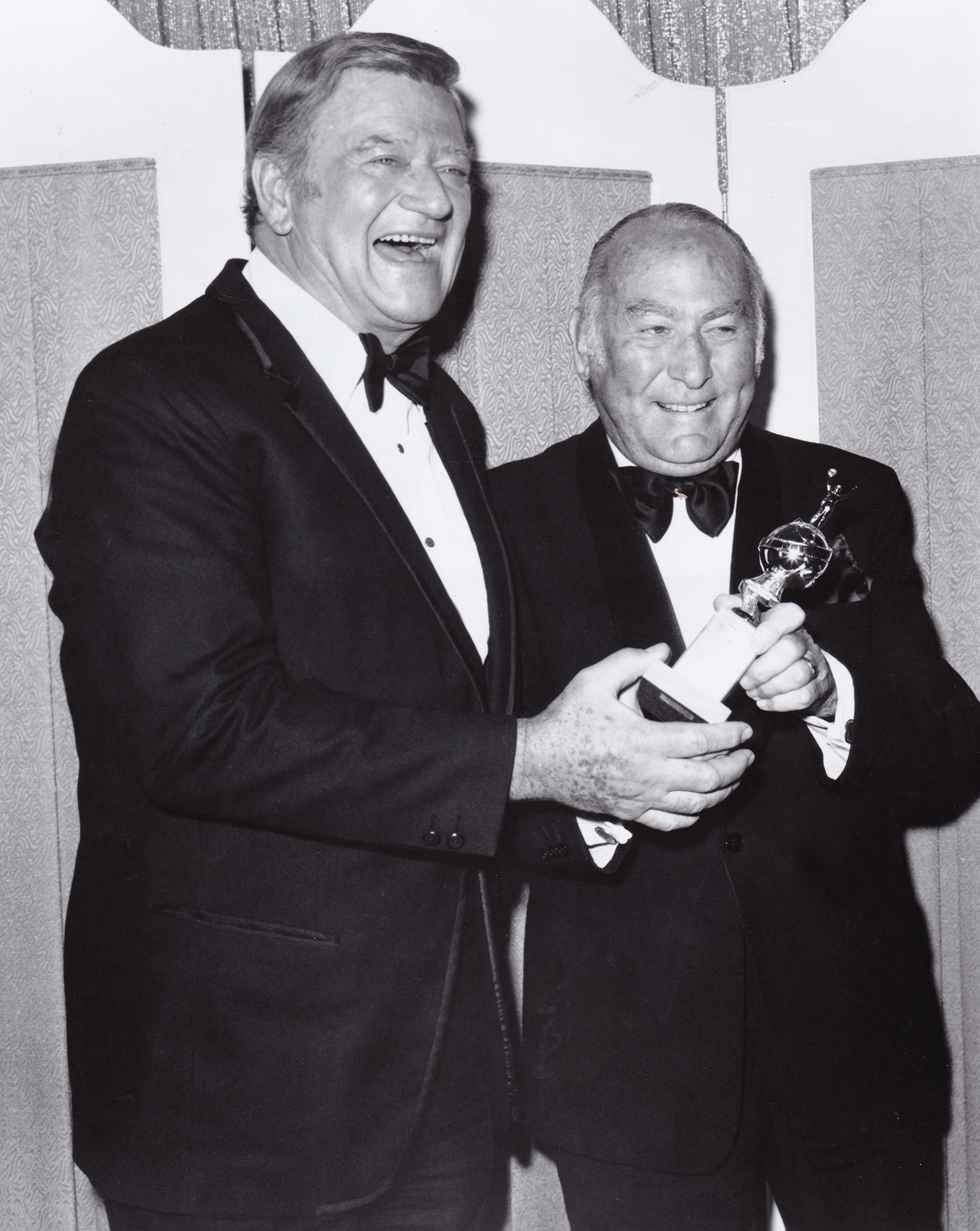
- Cecil B. DeMille
Ready for My deMille: Profiles in Excellence – Hal B. Wallis, 1975
"Arial",sans-serif;color:#550016″> was presented to its namesake visionary director, the Hollywood Foreign Press Association has awarded its most prestigious prize 66 times. From Walt Disney to Bette Davis, Elizabeth Taylor to Steven Spielberg and 62 others, the deMille has gone to luminaries – actors, directors, producers – who have left an indelible mark on Hollywood. Sometimes mistaken with a career achievement award, per HFPA statute, the deMille is more precisely bestowed for “outstanding contributions to the world of entertainment”. In this series, HFPA cognoscente and former president Philip Berk profiles deMille laureates through the years.
Hal B. Wallis was more bridesmaid than the bride when it came to winning awards, although he might argue that the Oscar Casablanca won was rightfully his. After his boss Jack L. Warner claimed the Oscar, he left the studio. Years later Wallis recalled. “I couldn’t believe it was happening. Casablanca had been my creation; Jack had absolutely nothing to do with it. As the audience gasped, I tried to get out of the row of seats and into the aisle, but the entire Warner family sat blocking me. I had no alternative but to sit down again, humiliated and furious. I still haven’t recovered from the shock.” Soon after, he became an independent producer at Paramount where he remained for most of his career.
Dean Martin, and Jerry Lewis to long term contracts. He also had an eye for new talent. Among those he signed were Lizabeth Scott, Charlton Heston, Burt Lancaster, Shirley MacLaine, and Kirk Douglas.
Joan Fontaine was a disappointment, but he was still finding his feet there. He was more successful in building a stable of new talent and introducing them in starring roles in films he produced, starting with Lizabeth Scott in You Came Along, but still intent on producing one film each year that would gain Golden Globe and Academy attention.
Jennifer Jones and Joseph Cotten from Selznick for Love Letters, and it was a hit that earned four Oscar nominations. The following year, 1946, his award contender was The Searching Wind, which despite a Lillian Hellman script, was his only misstep and a box-office dud. He survived it by utilizing his new contract actors Burt Lancaster, Wendell Corey, and Lizabeth Scott in smoldering dramas, Desert Fury and I Walk Alone, which both did well at the box office, but had to wait two years before he had his first serious Oscar contender Sorry Wrong Number, which earned his favorite actress Barbara Stanwyck an Oscar nomination. Was it their mutual contempt for Jack Warner that brought them together?
Shirley Booth to recreate her role in Come Back Little Sheba, which won her the Oscar that year. It was his first major win since his departure from Warner Bros., and three years later he repeated that feat when he chose Italian actress Anna Magnani to star in Tennessee Williams’ The Rose Tattoo. She was a shoo-in to win, and finally, the Hollywood Foreign Press chimed in, awarding Globes to Magnani and Marisa Pavan, as Best Actress and Supporting Actress.
The Rainmaker but instead of Geraldine Page who had created the role on Broadway, he went with Katharine Hepburn. The only actor to win an award that year was Earl Holliman, who won the Golden Globe as Best Supporting Actor.
Wild is the Wind, again with Magnani, like The Searching Wind, turned out to be an ill wind.
Summer and Smoke in 1961, when having learned his lesson, he allowed Page to recreate her stage role, and she went on to capture the Golden Globe as Best Actress. Now, no longer tethered to his contract players (Shirley MacLaine for one complained that he never knew how to use her), he devoted his time to one prestige property a year, starting with Beckett in 1964 and ending with Rooster Cogburn in l969, both Oscar contenders.
Anne of a Thousand Days. His final film Rooster Cogburn, a sequel to True Grit, won John Wayne his only Oscar and Golden Globe.

